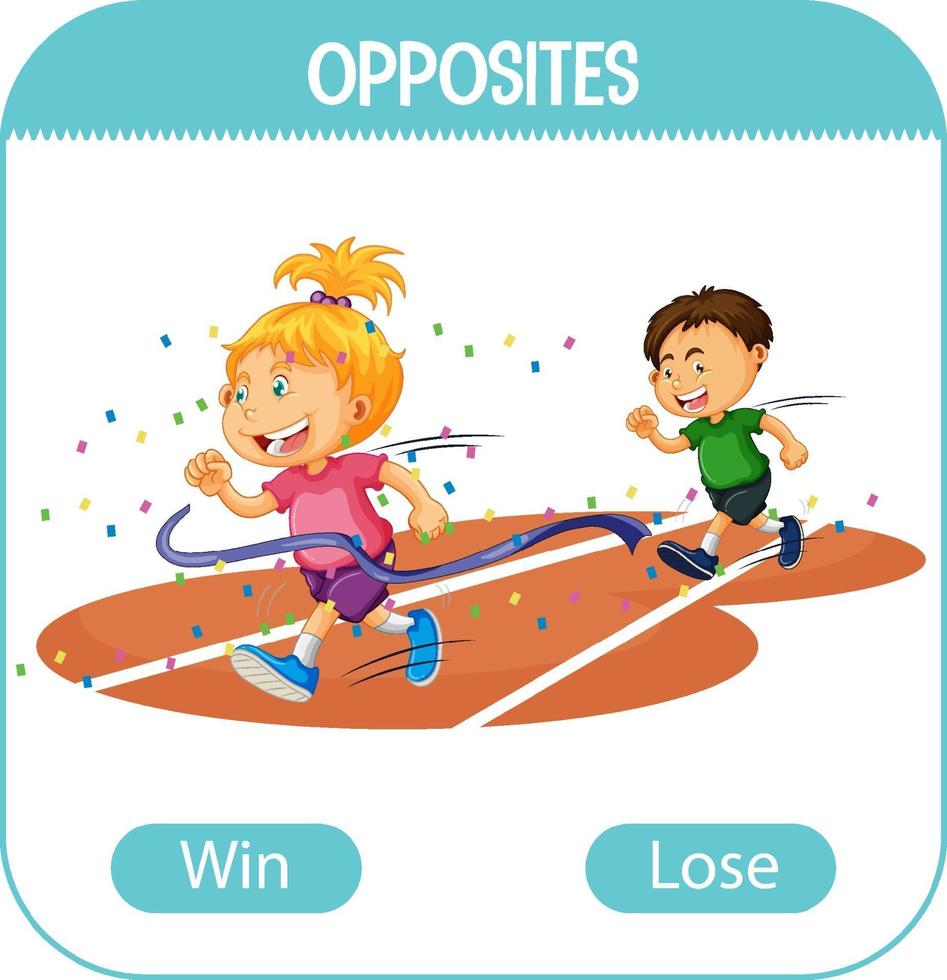Life is a rollercoaster, and sometimes you win, sometimes you lose. But here's the thing—how you handle both can define your journey more than the outcomes themselves. Whether you're chasing dreams, building relationships, or simply trying to make it through the day, understanding the concept of "win or lose" can change your perspective forever.
Let's be real for a sec. Winning feels amazing, right? That rush of adrenaline when you hit your goals, crush a project, or nail that perfect moment—it's unbeatable. But losing? Yeah, that sting can linger for days, weeks, or even years if you let it. The truth is, both winning and losing are part of the game, and learning to embrace them is what separates the good from the great.
So, why are we talking about "win or lose" today? Because life doesn't come with a manual, but it does come with lessons. Every win teaches you something, every loss shapes you into someone better. And hey, if we're being honest, sometimes losing can be the greatest win of all. Stick around, and let's break it down together.
Read also:New Tamil Movie Download The Ultimate Guide For Film Enthusiasts
Understanding the Concept of Win or Lose
Win or lose—it's not just a phrase you hear in sports or games. It's a way of life. Think about it: every decision you make, every action you take, has the potential to lead to either success or failure. But here's the twist—success and failure aren't as black and white as they seem.
For instance, winning doesn't always mean coming first. Sometimes, it's about progress, growth, or simply trying your best. On the flip side, losing doesn't have to mean defeat. It can be an opportunity to learn, adapt, and come back stronger. The key is shifting your mindset from seeing outcomes as final destinations to viewing them as stepping stones.
Why Win or Lose Matters in Everyday Life
- It shapes your resilience: Every time you face a loss, you build mental toughness.
- It fuels motivation: Winning gives you the drive to keep going, even when things get tough.
- It teaches adaptability: Both wins and losses force you to think on your feet and adjust your strategies.
So, whether you're negotiating a deal, competing in a race, or even just trying to cook dinner without burning it, the concept of "win or lose" applies. It's all about how you perceive the outcomes and what you do next.
Win or Lose: A Psychological Perspective
Psychology tells us that humans are wired to seek pleasure and avoid pain. Winning brings pleasure, while losing often brings discomfort. But here's the kicker—our brains are also designed to grow through challenges. Every time you experience a loss, your brain rewires itself to handle similar situations better in the future.
Research shows that people who embrace failure as part of the process tend to achieve more in the long run. A study published in the Journal of Positive Psychology found that individuals who viewed setbacks as opportunities for growth were more likely to succeed in their endeavors. Makes sense, right? If you're not willing to fail, you're not willing to grow.
The Science Behind Winning and Losing
- Dopamine release: Winning triggers a surge of dopamine, the "feel-good" hormone, which reinforces positive behavior.
- Cortisol response: Losing increases cortisol levels, the stress hormone, but it also primes your brain for future challenges.
- Neuroplasticity: Every experience, whether positive or negative, contributes to the brain's ability to adapt and learn.
In short, your brain is like a muscle. The more you train it to handle wins and losses, the stronger it becomes. So, next time you face a setback, remind yourself that it's just another workout for your brain.
Read also:Movierulz Telugu Your Ultimate Guide To Telugu Movies In 2023
The Art of Winning Gracefully
Winning is great, but how you handle success is equally important. Have you ever seen someone win and then act like a total jerk? Yeah, that's not how it's done. Winning gracefully means acknowledging your success without putting others down. It's about celebrating your achievements while remaining humble and respectful.
Here are a few tips for winning with class:
- Thank those who supported you along the way.
- Stay grounded and remember that success is temporary.
- Use your win as a platform to help others succeed.
Remember, true winners aren't defined by their victories but by how they treat others during their moments of triumph.
Learning to Lose with Dignity
Losing is tough, no doubt about it. But here's the thing—how you handle defeat can say a lot about your character. Instead of sulking or blaming others, try to see the bigger picture. Every loss is a chance to reflect, learn, and improve.
Here are some ways to lose with dignity:
- Accept the outcome without making excuses.
- Focus on what you can control and let go of what you can't.
- Use the experience as motivation to work harder next time.
At the end of the day, losing isn't the end of the world. It's just another chapter in your story. And who knows? That chapter might lead to something even better down the line.
Win or Lose: Lessons from History
Throughout history, some of the greatest figures have faced both wins and losses. Take Thomas Edison, for example. He failed thousands of times before inventing the light bulb. Or consider Michael Jordan, who was cut from his high school basketball team before becoming one of the best players of all time.
These stories remind us that success isn't linear. It's a series of ups and downs, and the key is to keep moving forward no matter what. As Jordan once said, "I've failed over and over and over again in my life. And that is why I succeed."
Historical Figures Who Embraced Win or Lose
- Abraham Lincoln: Faced numerous political defeats before becoming president.
- J.K. Rowling: Was rejected by multiple publishers before "Harry Potter" became a global phenomenon.
- Steve Jobs: Was fired from Apple before making a triumphant return to revolutionize the tech industry.
These examples show that failure isn't the end—it's just a detour on the road to success.
Win or Lose in Relationships
Relationships are all about give and take. Sometimes you win, sometimes you lose, but the key is finding a balance. Whether it's a romantic partnership, friendship, or professional collaboration, understanding the dynamics of win or lose can strengthen your connections.
Here are some tips for navigating win or lose in relationships:
- Communicate openly and honestly.
- Be willing to compromise when necessary.
- Celebrate each other's successes and support each other through failures.
Remember, relationships aren't about keeping score. They're about building trust, respect, and understanding. So, next time you find yourself in a win or lose situation with someone you care about, focus on the bigger picture.
The Role of Mindset in Win or Lose
Your mindset plays a huge role in how you perceive wins and losses. A growth mindset, as coined by psychologist Carol Dweck, is all about embracing challenges, learning from criticism, and persisting through obstacles. On the other hand, a fixed mindset sees abilities as static and is more likely to avoid challenges for fear of failure.
Studies show that people with a growth mindset are more resilient, adaptable, and successful in the long run. They view failures as opportunities to learn and successes as stepping stones to greater achievements.
How to Develop a Growth Mindset
- Embrace challenges instead of avoiding them.
- View feedback as a tool for improvement.
- Celebrate effort, not just results.
By shifting your mindset, you can transform the way you approach win or lose situations. Instead of fearing failure, you'll start seeing it as a chance to grow. And that, my friend, is a game-changer.
Win or Lose in Business
In the world of business, win or lose scenarios happen all the time. Whether you're launching a new product, negotiating a deal, or managing a team, the outcomes can vary greatly. But here's the thing—business isn't about always winning. It's about learning from every experience and using that knowledge to improve.
Here are some tips for handling win or lose situations in business:
- Analyze what went well and what didn't after every project.
- Encourage a culture of transparency and open communication.
- Invest in continuous learning and development for yourself and your team.
At the end of the day, success in business isn't just about the bottom line. It's about building relationships, creating value, and making a positive impact.
Win or Lose: The Power of Resilience
Resilience is the ability to bounce back from setbacks and keep moving forward. It's what separates those who give up after a loss from those who persevere until they achieve their goals. And let's be real—life is full of ups and downs, so resilience is a must-have skill.
Research shows that resilient individuals are more likely to achieve success, maintain mental health, and build stronger relationships. They view challenges as opportunities and setbacks as temporary.
Building Resilience in Everyday Life
- Practice mindfulness and self-care.
- Surround yourself with positive influences.
- Set realistic goals and celebrate small victories along the way.
By building resilience, you'll be better equipped to handle whatever life throws your way—whether it's a win, a loss, or something in between.
Conclusion: Embrace the Journey
Win or lose, life is all about the journey. Every victory and every setback is a chance to learn, grow, and become a better version of yourself. So, the next time you face a win or lose situation, remember this: it's not about the outcome—it's about how you handle it.
Now, it's your turn. Share your thoughts in the comments below. Have you ever turned a loss into a win? What's your biggest takeaway from this article? And don't forget to check out our other articles for more insights on life, success, and everything in between. Until next time, keep winning—or losing—with grace!
Table of Contents
- Understanding the Concept of Win or Lose
- Win or Lose: A Psychological Perspective
- The Art of Winning Gracefully
- Learning to Lose with Dignity
- Win or Lose: Lessons from History
- Win or Lose in Relationships
- The Role of Mindset in Win or Lose
- Win or Lose in Business
- Win or Lose: The Power of Resilience
- Conclusion: Embrace the Journey


